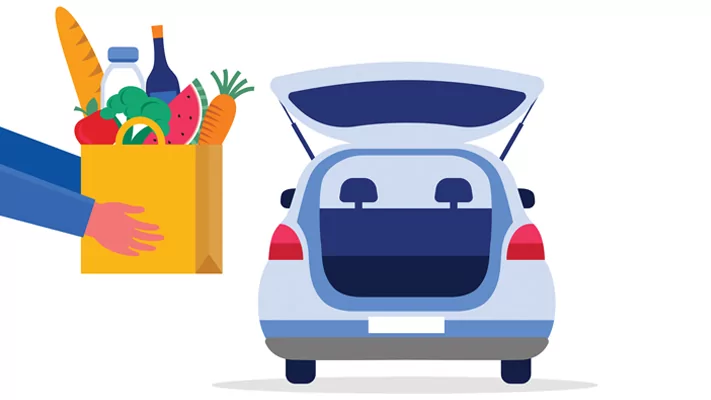Living in Manhattan, as I did for years, means that Saturday morning errands entail a complicated set of calculations about how much, exactly, you can carry. Groceries, wine, large hardware items — all of these go into the mental adding machine (mine is more like an abacus) as you decide which combination of things you can lug home. If you’ve ever tried to figure out that famous riddle about the farmer who needs to cross the river with a fox, a goat, and a cabbage, you know what I mean.
There’s only so much you can carry without breaking something and only so many to-do’s you can do. If you buy that big ham, for instance, you really can’t stop and get your dry cleaning too. It’s either lightbulbs or the Samuel Smith Nut Brown Ale in the big bottles. And the eggs won’t make it home uncracked if you get that big thing of detergent. Saturdays in the city complex workflow problems.
For the record, the solution is: Get your dry cleaning and the beer and forget about the detergent, lightbulbs, and ham. And the answer to the riddle is: Take the goat first, go get the fox, leave the fox on the other side and bring the goat back with you to get the cabbage, and then row back with the cabbage and the goat to join the fox. Although it’s unclear why you’re traveling with a fox in the first place, just as it’s silly to buy a big jug of detergent. So much easier to just send your laundry out.

The good news is I don’t have to solve that riddle anymore. Those Saturdays were, as I said, a feature of my life when I lived in Manhattan. But for the past few months, I’ve been living in a tony suburb in New Jersey, which means I can load up the car every Saturday morning with whatever I want, no calculations necessary. I buy everything I need (and a lot of things I don’t) happily confident that it’ll all fit in the car and I won’t have to lug it back to my apartment, struggling with the dry cleaning plastic as it flies across my face and seals off my nose and mouth or the thin plastic bag handles that cut into my hands for the final two blocks. I just stick it all in the car and drive to the next place and repeat the process until I remember that it’s nearly noon and those Samuel Smith ales aren’t going to drink themselves.
Even the most legendarily tiresome Saturday morning excursions are easier in the suburbs. For weeks after my move, I dreaded the day when I needed to go to the local Home Depot — moving to a new place seems to require multiple trips to this place — and I was certain I’d be stuck in snaking, endless lines at the checkout or wandering around in bafflement waiting for someone to answer a question. Neither happened. I did most of the work I needed to do before I got there, using the Home Depot app. (They also have one that works the same way for Costco, another frequent stop here in suburbia, and Target.) And when I got there, it was organized and well staffed, unlike the one I used to avoid on 14th Street.
I know I should be happy about all of this. Since I moved out of Manhattan, life is easier, more convenient, and cheaper. I have time to read without distraction, and evening walks are filled with the smell of wood-burning fireplaces and the sound of parents calling their children in for dinner. Instead of the smell of human feces and the insane sounds of the person who produced them. Life in a college town in southern New Jersey is a huge improvement.
But for some reason, whenever I’m back in Manhattan at a professional event or a social gathering and people ask, “Hey, how’s life in the suburbs?” I always answer with a shrug. “You know,” I say in a low-key tone, “it’s boring. Pleasant but boring.” I don’t extol the joys of limitless Costco runs or the lack of human waste underfoot. For some reason, even though I’m enjoying my new life in the suburbs, I’m unable to admit it. Perhaps that’s the final inconvenience that Manhattan imposes on its residents — you’re so used to doing everything the hard way that you don’t recognize a good thing when you’ve got it.
CLICK HERE TO READ MORE FROM THE WASHINGTON EXAMINER
Rob Long is a television writer and producer, including as a screenwriter and executive producer on Cheers, and he is the co-founder of Ricochet.com.
